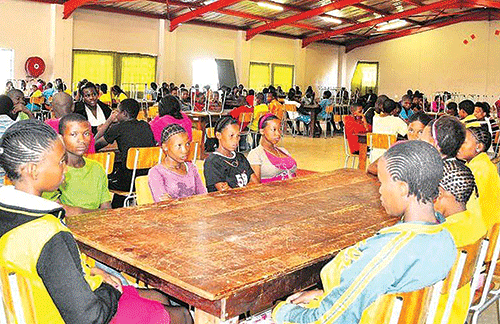Zebaldt Ngaruka
EPUKIRO – About 17 learners from the marginalised San community in the Omaheke region qualified to study at institutions of higher learning in the country.
Omaheke regional development planner in the Ministry of Gender Equality, Poverty Eradication and Social Welfare Desiree Masheshe confirmed to New Era that the qualified learners will be fully-funded for their further studies.
She emphasised that the funds will be released once the learners get admission at the tertiary institution of their choice, and in the field of study of their choice.
“This is a great achievement for the region as we normally enrol less than three per year,” she added excitedly.
Masheshe, who also benefitted from similar funding called the Education Support Programme (ESP), confirmed that the division employs students once they complete their further studies. “Of course, when there are vacancies in our division, they are the priority,” she said. The funding will cover tuition fees, accommodation and monthly pocket money of N$1 500.
One of the ESP beneficiaries, Florida Mieze, told this publication that
education is a powerful tool for driving positive change, and creating opportunities for individuals and communities.
The honours degree holder in Sociology and Industrial Psychology from the University of Namibia advised newly- qualified learners to approach the journey ahead with an open mind and a desire to learn.
“To reconcile academic responsibilities with personal interests and activities, you must be organised, and time management is essential. Seek out support networks such as friends, teachers or university resources to assist you in negotiating the hurdles, and celebrate your triumphs along the road,” she said.
Mieze, who is currently employed by the gender equality ministry, urged learners to remain curious, ask questions, and not be hesitant to seek out new chances for growth and self-discovery.
Another former beneficiary and graduate is Matamo Khaled Kambila from Unam’s Ogongo campus, who encouraged San learners to approach their studies with determination.
“Education is not only a privilege, but also a pathway to empowerment, breaking barriers of marginalised communities and fostering positive change,” he noted.
Kambila, who graduated last year with a Higher Diploma in Agriculture (crop and animal science), said although currently unemployed, he is grateful to the ministry for funding his studies.
“I hope to get a job soon, and preferably in Tsumkwe, as most people working there do not speak our language,” he added.
Last year, 34 San students graduated
from institutions of higher learning countrywide.


